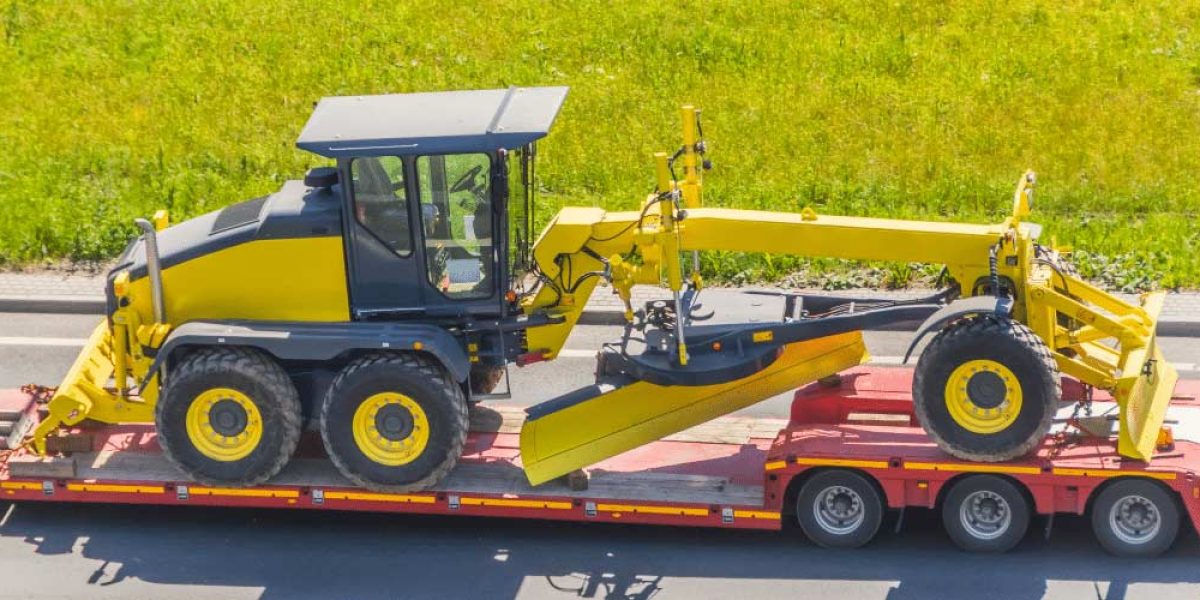In the world of logistics and transportation, shipping heavy equipment demands meticulous planning, adherence to regulations, and awareness of restrictions. Whether you’re moving construction machinery, industrial equipment, or agricultural implements, understanding the shipping requirements and restrictions is paramount. This article provides a comprehensive guide to accessing such information, ensuring smooth and compliant heavy equipment shipping operations. Learn more to grow.
Understanding the Scope of Heavy Equipment Shipping
Before delving into the specifics of shipping requirements and restrictions, it’s crucial to grasp the breadth of heavy equipment shipping. Heavy equipment encompasses a wide array of machinery, including but not limited to excavators, bulldozers, cranes, tractors, and industrial presses. Each type of equipment comes with its own set of challenges and considerations during transportation.
Identifying Regulatory Bodies and Resources
Government Agencies: Start by identifying the relevant government agencies overseeing transportation and shipping regulations. In many countries, departments or agencies responsible for transportation, such as the Department of Transportation (DOT) in the United States or the Ministry of Transport in other countries, play a pivotal role in setting and enforcing regulations.
International Organizations: For international shipments, organizations like the International Maritime Organization (IMO) and the International Air Transport Association (IATA) provide guidelines and regulations governing the transportation of heavy equipment across borders. Here provided more info.
Industry Associations: Industry-specific associations such as the American Trucking Associations (ATA) or the Specialized Carriers & Rigging Association (SC&RA) often offer valuable resources, including publications, webinars, and seminars focusing on shipping requirements and best practices.
Navigating Shipping Requirements
Dimensional Limits: One of the primary considerations in heavy equipment shipping is understanding dimensional limits. This includes the maximum height, width, length, and weight allowed for transportation on different modes of transport, such as roads, railways, sea, or air.
Permitting and Licensing: Depending on the size and weight of the equipment, special permits or licenses may be required for transportation. These permits are typically issued by government authorities and may involve fees and specific conditions.
Route Planning: It is important to plan the transportation route to avoid obstacles such as low bridges, narrow roads, or weight-restricted areas. Utilizing specialized route planning software or consulting with experienced logistics professionals can help optimize the route for efficiency and compliance.
Packaging and Securing: Proper packaging and securing of heavy equipment are essential to prevent damage during transit and ensure safety for both the cargo and the transportation crew. Compliance with packaging standards set by regulatory bodies is imperative.
Addressing Legal and Safety Considerations
Insurance Requirements: Adequate insurance coverage is indispensable in heavy equipment shipping to mitigate the risks associated with loss, damage, or liability. Understanding the insurance requirements and ensuring compliance with them is paramount for all parties involved in the shipping process.
Safety Regulations: Safety regulations governing the transportation of heavy equipment aim to protect both the cargo and the public. These regulations encompass aspects such as load securement, vehicle maintenance, driver qualifications, and hours of service. Non-compliance can result in fines, penalties, or even accidents.
Environmental Compliance: Heavy equipment shipping may involve handling hazardous materials or substances, requiring adherence to environmental regulations. Proper disposal of waste, spill prevention measures, and compliance with emission standards are integral aspects of environmental compliance.
Utilizing Online Resources and Tools
Government Websites: Many government agencies maintain online portals or databases where individuals and businesses can access information on shipping regulations, permitting requirements, and safety guidelines. These websites often provide downloadable forms, FAQs, and contact information for further inquiries.
Industry Portals: Industry-specific portals and forums serve as valuable platforms for sharing knowledge and experiences related to heavy equipment shipping. These platforms facilitate networking opportunities and provide access to expert advice and best practices.
Mobile Applications: Some logistics companies offer mobile applications that streamline the process of obtaining permits, tracking shipments, and accessing regulatory information on the go. These applications often feature user-friendly interfaces and real-time updates.
Addressing International Shipping Challenges
Customs Regulations: When shipping heavy equipment internationally, navigating customs regulations is paramount. Each country has its own set of import/export requirements, duties, and taxes. Understanding these regulations and ensuring compliance is crucial to avoid delays and additional costs.
Documentation Requirements: International shipments require a myriad of documents, including commercial invoices, packing lists, certificates of origin, and import/export permits. Proper documentation ensures smooth customs clearance and reduces the risk of shipment rejection or confiscation.
Incoterms: Understanding International Commercial Terms (Incoterms) is essential for clarifying responsibilities and liabilities between the buyer and seller during international transactions. Choosing the appropriate Incoterm dictates who bears the risk and cost of transportation, insurance, and customs clearance.
Transportation Modes: Selecting the most suitable transportation mode for international shipping depends on factors such as transit time, cost, and cargo size. Options include sea freight, air freight, rail transport, and multimodal transport solutions. Each mode comes with its own set of regulations and considerations.
Conclusion
Navigating the requirements and restrictions associated with heavy equipment shipping requires careful planning, attention to detail, and compliance with regulations. By understanding the regulatory landscape, leveraging online resources, and prioritizing safety and legal considerations, businesses can ensure successful and hassle-free transportation of heavy equipment to their intended destinations. With the right knowledge and tools at their disposal, logistics professionals can overcome challenges and optimize shipping operations in this specialized sector.
Published by: Martin De Juan








